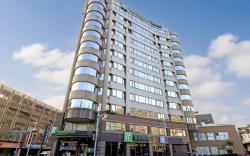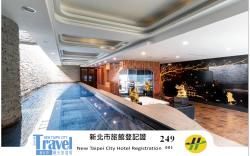Taiwan Tobacco and Liquor Corporation Linkou Distillery Introduction
Linkou Distillery is a new winery formed by the merger of the Taipei Distillery (established in 1921), Banqiao Distillery (established in 1937), and Shulin Distillery (established in 1906), with its official mass production commencing in the spring of 1987. Each of the original distilleries had different products and cultural characteristics, and after the merger, it has developed into the largest and most modern rice liquor production factory in Northern Taiwan. Since its establishment, Linkou Distillery has primarily produced Shaoxing wine. In 1996, it utilized the original Shaoxing wine production equipment to brew Japanese sake, successfully launching "Yuqian Sake," the only sake produced in Taiwan. In 2004, to address the byproduct problem of sake lees, it developed the "Taiwan Sake Lees Facial Mask," positioning it as a natural skincare material, and it became widely popular, being dubbed the "Poor Man's SK-II." In 2005, it innovatively combined Eastern red yeast and Western wine to launch "Yuqian Red Yeast Wine," promoting health concepts suitable for Taiwanese tastes, which gained immense popularity, making it the best-selling wine brand in Taiwan. Linkou Distillery not only focuses on the research and development of various types of alcohol but has also diversified its production methods. In 2007, it collaborated with a large biscuit manufacturer to develop "Taiwan Red Yeast Health Biscuit," which became extremely popular for its unique flavor, generating over 1 billion NTD in revenue within just a year and a half, resulting in a miracle in the biscuit industry. To pursue diversified operations, aside from alcohol production, it has set up a visitor center with exhibition halls like the "Sake Museum," "Red Yeast Museum," and "Wine Bank," allowing the public and tourists to visit. This initiative provides visitors with insights into the brewing process and history and promotes connections with other attractions in the industrial area, such as the Formosa Plastics Museum, Zhu Lin Temple, Formosa Plastics Medical Park, and Huaya Technology Park, forming a local industrial cultural tourism theme. This not only boosts industrial tourism but also enriches the tourism system in Taoyuan City. To align with the company's asset activation policy, Linkou Distillery is integrating with Taoyuan County's airport city development plans and the opening of the airport MRT line, combining alcohol production, industrial history, and favorable market conditions to create a factory park that reflects the culture of sake. This aims to connect surrounding districts, scenic spots, attractions, and public facilities, building a landmark winery in Northern Taiwan, which hopes to attract 8 million people from Northern Taiwan to visit for leisure and thus increase revenue.
































